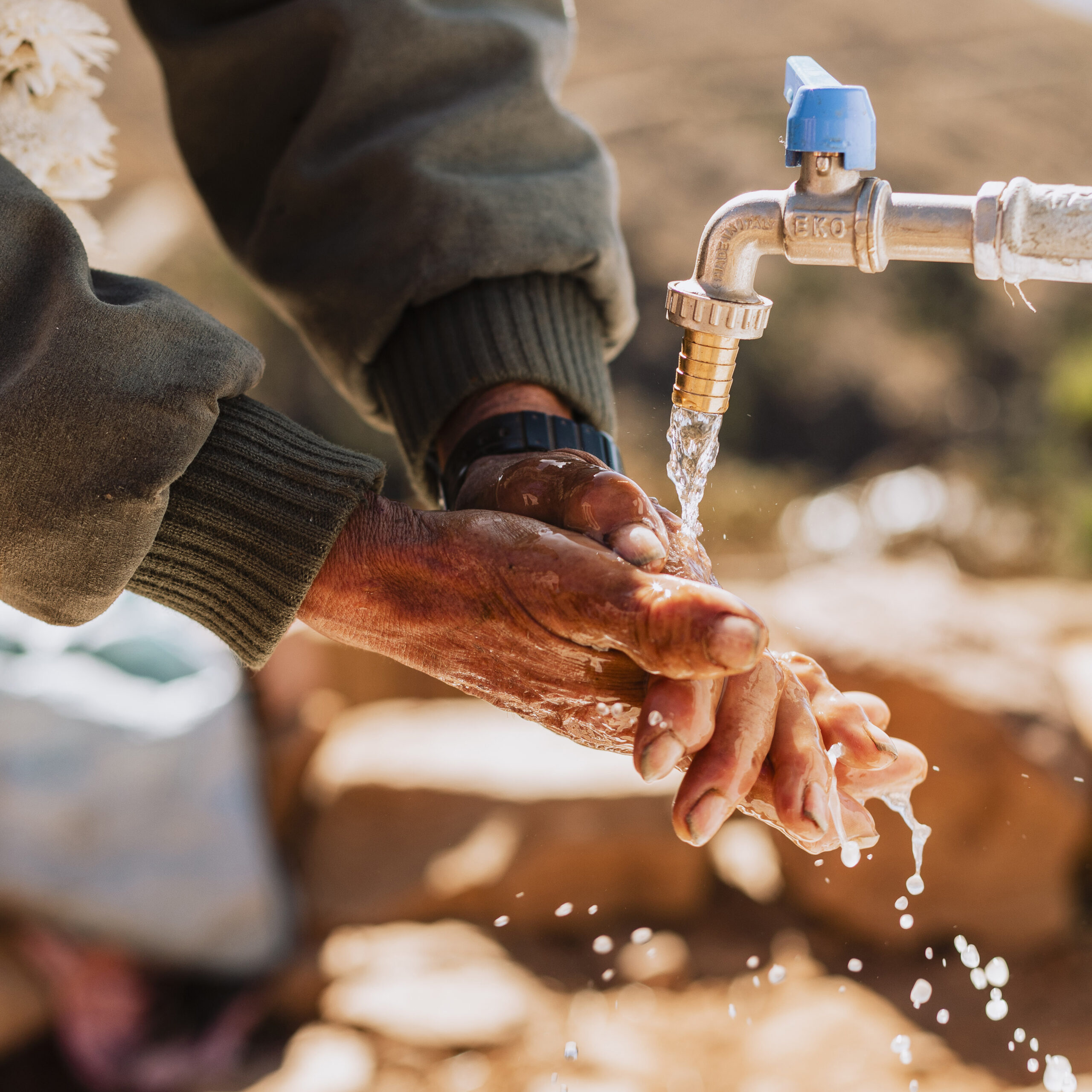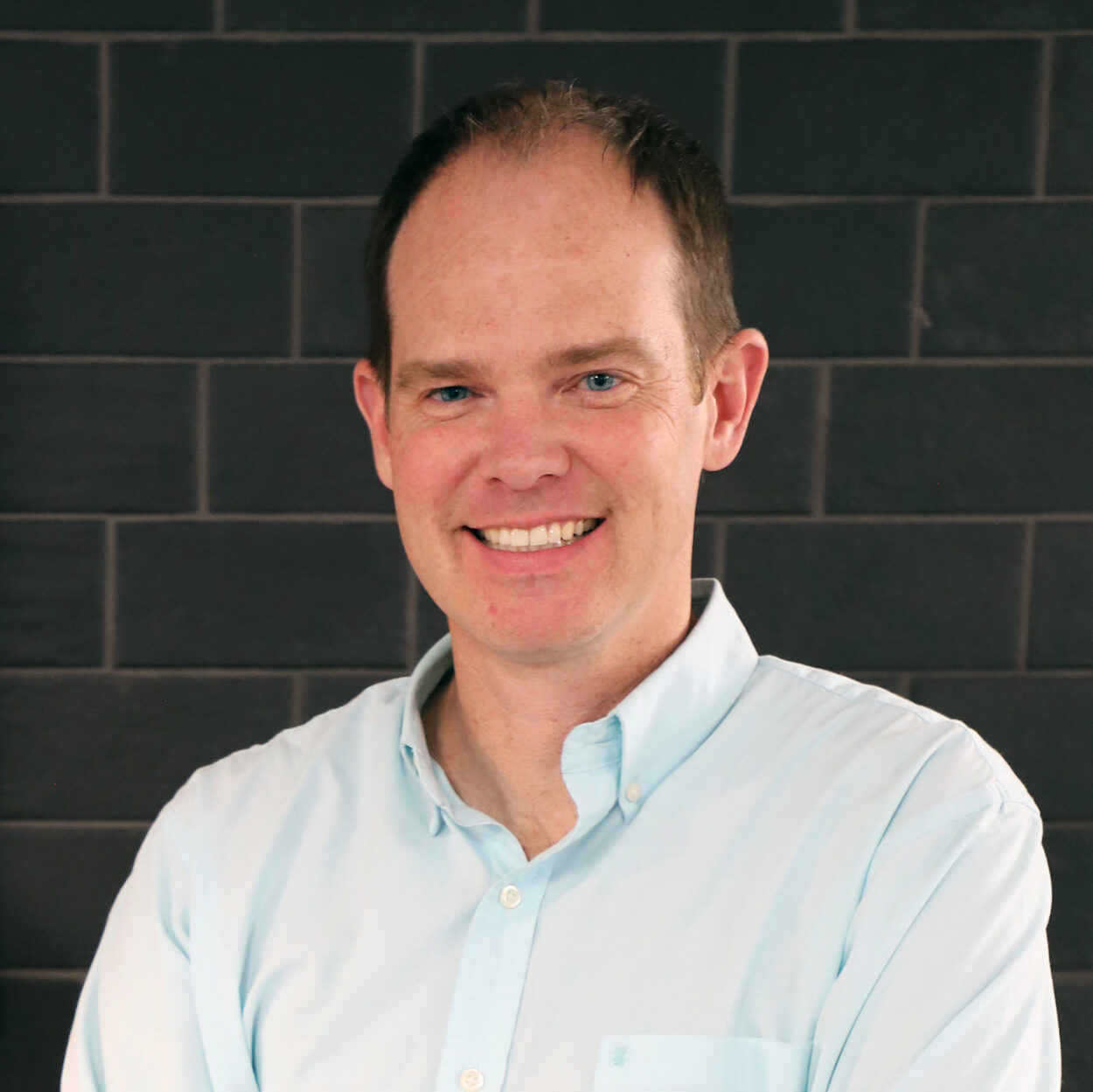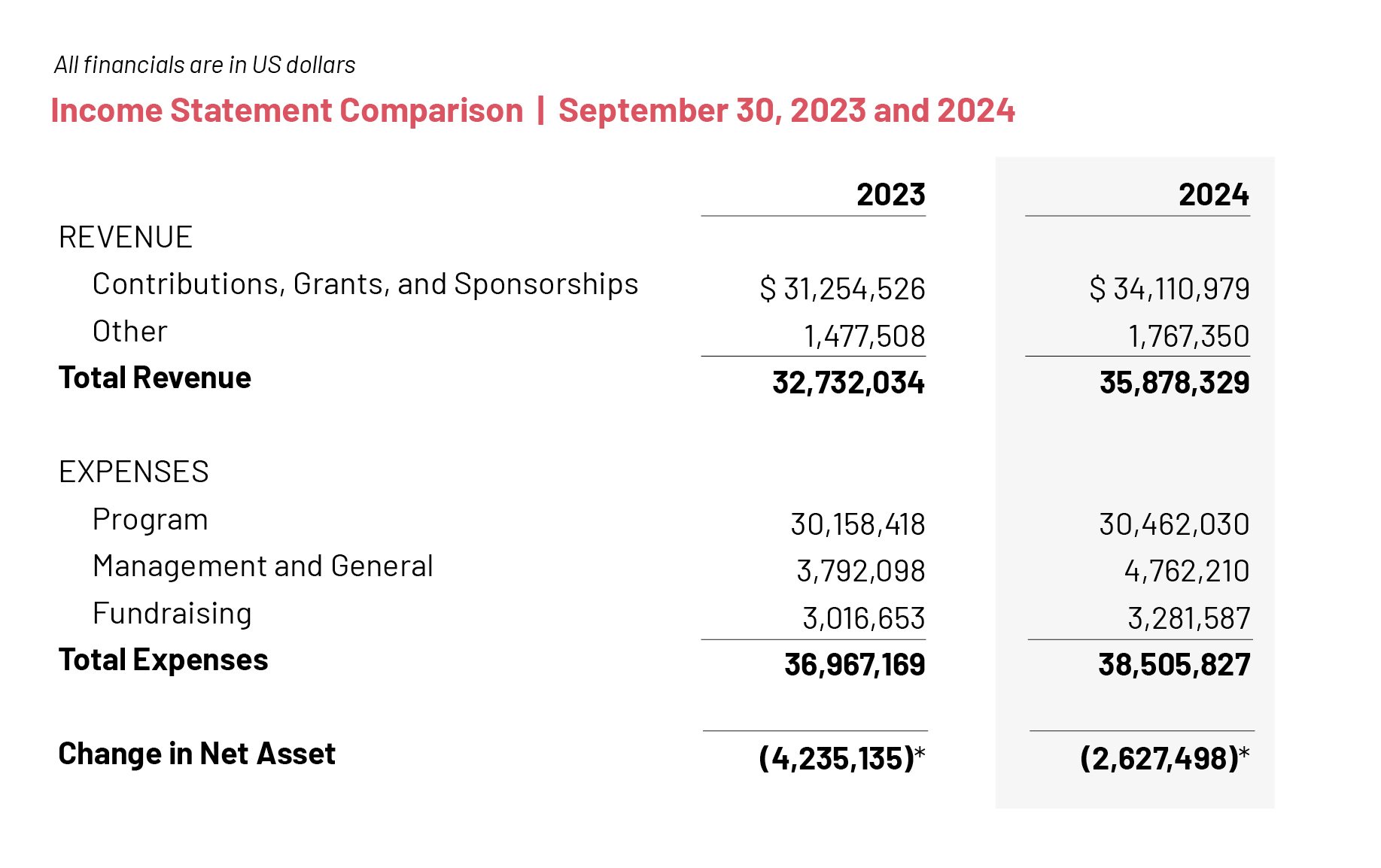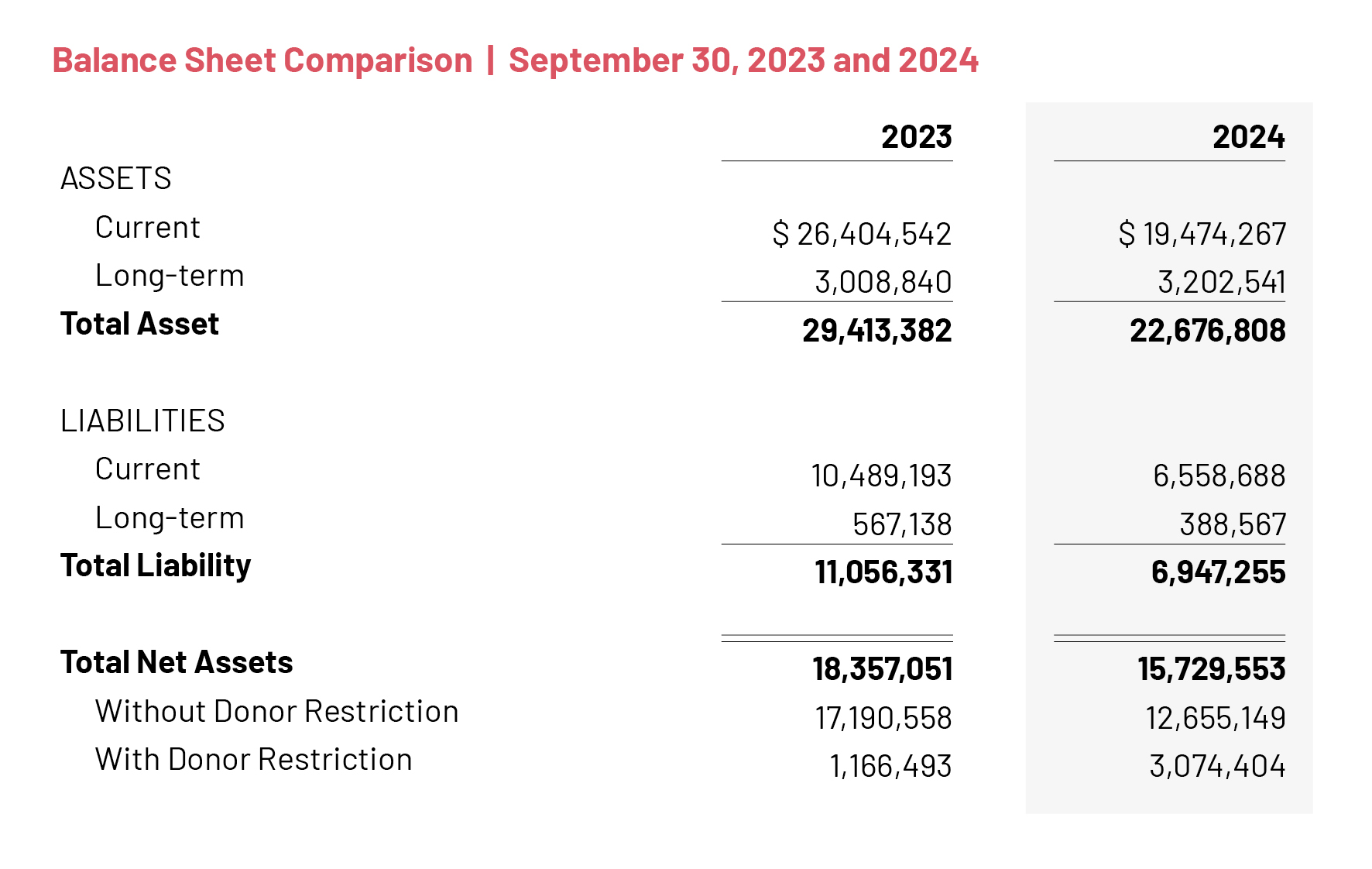2024 IMPACT REPORT
2024 Impact Report
A Few Words
From Our CEO
Over 2 billion people in the world still lack clean water. And 3.5 billion people don’t have a decent toilet. This is a crisis. On top of this, most people are experiencing climate change through water.
I believe even one person without clean water and a toilet
is unacceptable.
This belief drives me – and drives all of us at Water For People – every single day. It’s the heart of our Everyone Forever approach: reaching every family, health clinic, and school with lasting water and sanitation access.
Thank you for powering the impact you see reflected in this report. Together, we will change lives with safe water, sanitation, and hygiene access for Everyone Forever.
Because anything less is unacceptable.


Mark Duey
Water For People, CEO
Mark first crossed paths with Water For People as a Peace Corps Volunteer in Honduras. He joined Water For People in 2008, coordinating a school water, sanitation, and hygiene program across Central America. Over the past 17 years, Mark has led teams and strategies across the organization. Today, he leads alongside the Global Leadership Team, with members representing each region where Water For People works.
Read the Impact Report
View or download the full PDF report:
2024 in Review
Through the Everyone Forever model, Water For People aims to reach every household, school, health clinic, and community with lasting water, sanitation, and hygiene services. These numbers reflect our local work in Everyone Forever districts, with hundreds of thousands of lives changed, thanks to our teams, partners, and supporters.
0
People reached with new or improved water services
0
People reached with new or improved sanitation services
0
People reached with
hygiene education
0
Schools with access to improved water, sanitation, and hygiene
0
Health clinics with access to improved water, sanitation, and hygiene
0
Communities with new or improved water services
Measuring Everyone Forever
In 2024, we achieved ten Everyone Forever milestones across seven locations. Check out the timeline below to understand our progress in Cuchumuela, Bolivia, an example of long-term commitment in action.

Public Institution Everyone Milestone
means 95% of schools and clinics have reliable water and sanitation service
Tiraque, Bolivia
Peri-urban Blantyre, Malawi
Sanitation
Forever Milestone
means sustainable sanitation service
Arbieto, Bolivia
San Benito, Bolivia
Villa Rivero, Bolivia
El Negrito, Honduras
Basic Sanitation Everyone Milestone
means 90% of households have basic sanitation coverage
Cuchumuela, Bolivia
Water
Forever Milestone
means sustainable
water service
Cuchumuela, Bolivia
San Benito, Bolivia
Villa Rivero, Bolivia
Click here to learn about all the milestones we have achieved since the launch of Everyone Forever.
Luci uses her water tap at home in San Bartolomé Jocotenango, Guatemala
Climate Spotlight
Climate change is already affecting people's water access, and no place where we work is immune to these hazards. Roughly 90% of climate disasters are related to water. Additionally, the communities facing the most significant threats contribute the least to climate change.
Protecting the environment is essential for what we do. Safe drinking water depends on clean, reliable sources – but climate change is making that harder by disrupting water cycles. If water sources dry up or get too polluted, communities lose access. That’s why we focus on protecting watersheds to keep water flowing for the long term.
Our sanitation work also helps protect people and the planet. By investing in safe sanitation systems, we prevent waste from polluting the environment. We work across the entire sanitation chain – from supporting household bathroom construction to emptying, transporting, treating, and disposing or reusing waste – so that untreated waste doesn’t end up in the environment.
WHAT WE'RE DOING
What We're Doing
We partner with communities and governments to protect water sources, build infrastructure that can handle more extreme weather events, safely manage sanitation, and set aside funds for future operation and maintenance. With these strong systems, the benefits of water, sanitation, climate, and hygiene can last for generations.
0.5% of water on Earth is usable and available freshwater – and climate change is dangerously affecting that supply
World Meteorological Organization,
2021 State of Climate Services, 2021

UPSTREAM
Water we depend on for daily use
UPSTREAM
- Mapping watersheds in Guatemala.
- Protecting a city’s water source in Malawi.

IN COMMUNITIES
IN COMMUNITIES
- Conserving water with micrometers in Honduras.
- Centering women and traditional practices in India.

DOWNSTREAM
Water we have the responsibility to protect for future use
DOWNSTREAM
- Building artificial wetlands in Peru.
- Adapting bathrooms for flooding in Uganda.
Click here to read the full impact report page about our work on climate.
Protecting
Water Sources
Meet the Water For People team members in Guatemala and their community partners who are working to protect water sources through forestation, watershed planning, and protection.
Rosa fills a bowl with water at her family’s new water tap in Tiraque, Bolivia
Water is at the Center of Everything
A person’s access to water and sanitation is connected to their health and well-being, education, economic opportunities, and ability to withstand the impacts of climate change and other stressors. Water is the foundation for our ability to thrive.
We can’t have adequate health without safe water. A family drinking from a contaminated water source can lead to serious illness from diseases like cholera. This means parents may be unable to work, and children may miss school. Time and money are spent visiting a healthcare center. But what if that medical center lacks reliable clean water, safely managed sanitation, and sufficient handwashing? Both patients and medical providers are at risk of spreading disease.
Without education, cycles of poverty can continue from one generation to the next. A young child may wake up and, instead of getting ready and going to school, first walk to collect water for their family. When they arrive, they may be late and exhausted, which affects their ability to learn. And if the school lacks safe, reliable water and private, well-maintained bathrooms? They’ll miss classes and fall behind, missing out on crucial skills and opportunities.
High poverty often overlaps with low access to drinking water and sanitation. A farmer can’t grow food if water is contaminated or unavailable. A plumber can’t repair a broken pump if they don’t have the tools or training. A shop owner can’t stay open if they’re sick with a waterborne illness. These overlaps limit people’s ability to live in good health, earn an income, and support their families.
Around the world, women and girls bear the brunt of the water and sanitation crisis. A woman may wake before sunrise every day to start walking for water. A young girl may drop out of school because she can’t manage her period when there are no bathrooms, and monthly absences mean she falls behind. A mother in labor may need to deliver her baby without clean water. Women and girls without bathrooms at home are more likely to feel unsafe walking alone at night and face safety risks.
Global Map
A woman carries her water vessel in Birbhum, India
Our Strategy Destination 2030
Destination 2030 is our vision and strategy for how Water For People will help bring safe water, sanitation, and hygiene to everyone – by working across the community, district, and national levels. It also guides how we show up globally, influencing the international development space through deep collaboration, partnerships, and shared learning.
At the heart of Destination 2030 is big-picture thinking. We're not aiming for small steps – we're pushing for bold, transformative progress. With 2 billion people still lacking water, we’re grounded in urgency and guided by the belief that even one person without clean water and a toilet is one too many.
"Together, we are pursuing climate-resilient, sustainable water, sanitation, and hygiene services for everyone alongside governments, entrepreneurs, teachers, community leaders, and strategic partners.
Ultimately, we hope to inspire the collaboration needed worldwide to close the gap for the over 2 billion people who lack water by 2030"
– Mark Duey
CEO, Water For People

Through the 2022-2024 Strategy Period, Water For People:
Rufino Montaño stands in front of his newly constructed latrine in Tiraque, Bolivia
Our Finances
We act honestly and transparently to inspire trust. We build and support systems that are ethical, equitable, and effective. For 20 years, Water For People has earned a 4-star Charity Navigator rating, a rare distinction that reflects our commitment to transparency and accountability. Financials reflect October 1, 2023, to September 30, 2024.
2024 Revenue Sources
 In 2022, we received a transformational $15 million gift from philanthropic leader MacKenzie Scott. By strategically investing portions of this gift across multiple years, we are accelerating programs in alignment with our Destination 2030 Strategy. These planned strategic investments drive the variances between our expenses and revenue in a given year and the year-over-year decreases in net assets.
In 2022, we received a transformational $15 million gift from philanthropic leader MacKenzie Scott. By strategically investing portions of this gift across multiple years, we are accelerating programs in alignment with our Destination 2030 Strategy. These planned strategic investments drive the variances between our expenses and revenue in a given year and the year-over-year decreases in net assets.

Follow us on social media
For live updates and more stories

